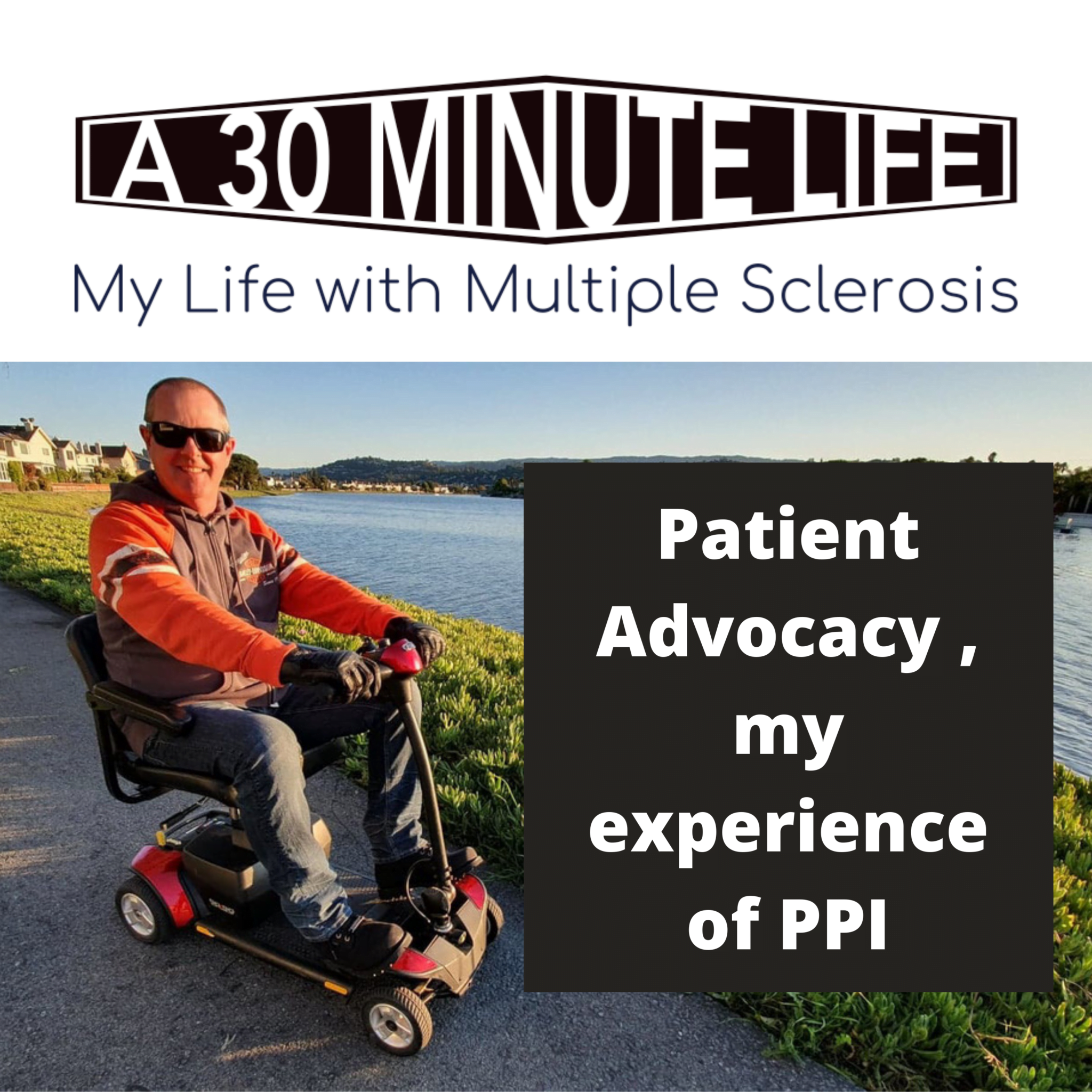My first experience of participating in research was over 15 years ago when I tried to get a trial started on a medication I was using to treat my Multiple Sclerosis, an illness diagnosed a decade earlier. It was unsuccessful. The principal reason, I think, for my failure was a an absence of knowledge of the whole medical system. Although I have different ailments, which ensured I was a user of the health services in Ireland, I had no awareness of how it worked.
Fast forward to 2017, when I started my blog, I learned more about how I fit into the medical system. The catalyst was a car accident in 2014 which causes me to have constant pain and pushed my Relapsing Remitting MS to a new advanced form of Secondary Progressive. The combination of these two chronic illnesses gradually forced me out of a ‘normal’ life to one which centres around treating my maladies and their impact on each other.
No longer can I work in the field I had experience, as my symptoms proved too big an obstacle. Now I had to adapt and use my illness as a tool. To achieve this, I started writing for the MS Society’s “MS & Me” Blog. This has led me into advising organisations like IMI-PARADIGM, and pharmaceutical companies. In June 2019 I saw an ad for a post of an Assistant Researcher with the COB-MS trial. The ad was in the MS Societies Research newsletter as the trial wanted someone who could be the voice of people with MS. This was something I could do, and so I applied, and on July 30, 2019, I started the job.
Working as a Researcher
I started strongly, as they asked me to draft a Patient Information Sheet (PIS) for the people who would take part in the trial (the participants). This was completely new to me, but I grasped the challenge, and following some investigation, and general guidance from Dr Sinead Hynes (Principal Investigator – My Boss), I drafted something. To make it even more interesting, my colleague, Dr Christopher Dwyer, drafted a PIS too. We randomly sent one, or the other, to the people who asked about taking part in the therapy which might improve their cognitive skills.
We still don’t know if there is any difference in effect of the different PIS from the participants’ viewpoint (the trial is still happening), but an analysis of the two PIS’s show’s my one is easier to read and understand. This is mainly because a patient wrote the document. The thrill I had about doing this is how much it empowered me. Even though I have no research, or medical training, I could do this. The reason I am an expert in my illness. I have lived every day for the last 28 years with MS and in this time I have learned what I need as someone with this illness.
By being part of this, so early in my career as a researcher and as a patient participant, I realised I was only scratching at the surface. In two ways, the first is the potential benefit I can be for research and second, how little I knew of the medical system.
Training to be a Patient Expert
One of my colleagues on the “MS & Me” Blog is Joan Jordan, and she is an EUPATI fellow. EUPATI is an EU organisation whose aim is to educate patients about the medicines development process and how patients can become more involved in research. Because of her experience of EUPATI and my lack of knowledge, I became a student with EUPATI, and will complete my training in March 2021.
This training is comprehensive, teaching us all about medicine. From why a medicine is in a pill, and not an injection, to the latest information about our genes. Combine this with education of the regulatory process, and the stages of drug research I now can sit at the table with a pharmaceutical company with education of their system. I know their language. As part of the training, which is online, we have time to meet a group of people who want to use this teaching to help advance research. This network of like-minded patients, and teachers, is a phenomenal resource, which can add to your own background.
Once I started my new education, they directed me to IPPOSI, which is the Irish version of EUPATI. They also have a training scheme for patients, which is just as comprehensive as EUPATI. I am now taking part in IPPOSI and have recently been selected to be part of the Oversight Committee for a new Patient Jury project about electronic health information. This week I have also started another role as a member of the HSE R&D PPI in Research Advisory Panel. How things have progressed in the last few years.
Patient Involvement in Action
Last week, as part of my work in the university, I co-presented with my colleague Dr Sinead Hynes, to an academic audience 5 positive outcomes of PPI in the COB-MS trial. How far I have progressed since I started the job. You can view this presentation here, and it highlights the many ways we as patients can influence, or even guide the direction of research. Developing therapies and medicines which are more relevant, and I hope to improve the patients’ Quality of Life.
The Power of Advocacy
Now I am in a much better position to be the voice of the patient. I am gaining experience in the university about research, which my EUPATI education supports. As you can see, I am more active as an advocate. This is very positive for me. I am disabled and chronically ill, it would be very easy to give up on life. My body is telling me to stop, but my head has found a way to continue with life, in a positive way. I am empowered; I am useful and I am contributing to the wellbeing of others, and it makes me feel powerful. Even though I can barely walk and pain controls my day, I have found something positive out of all this negativity.
Recently, I wrote a post asking a question of myself, and if I should continue my Patient Advocacy. My decision is to continue what I have started for as long as my illnesses permit. I have already gained far more than I ever thought would be possible, and I have barely started.



Well done Robert. You are an inspiration for so many people living with Chronic illness. Glad to see you intend to keep the good work going!